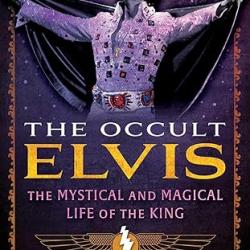By Rabbi Scott Perlo - June 3, 2009
Photo by moshebar
 There is nobility in the idea of martyrdom - the willingness to sacrifice one's life for God. But the history of the word "martyr" and its Jewish correlate, Kiddush haShem, "Sanctifying [God's] Name," mirrors the dark religious history of our world. The changes and development, even regression, in their meaning and connotation through time evoke, at each stop along the way, great pain, suffering, and horror for the Jewish people. It is a story that too many peoples of this world know, especially today when the word "martyr" has gained a new aggression in multiple world cultures - including pockets of Judaism - bringing death and destruction with it.
There is nobility in the idea of martyrdom - the willingness to sacrifice one's life for God. But the history of the word "martyr" and its Jewish correlate, Kiddush haShem, "Sanctifying [God's] Name," mirrors the dark religious history of our world. The changes and development, even regression, in their meaning and connotation through time evoke, at each stop along the way, great pain, suffering, and horror for the Jewish people. It is a story that too many peoples of this world know, especially today when the word "martyr" has gained a new aggression in multiple world cultures - including pockets of Judaism - bringing death and destruction with it.
The beginnings of both words are fairly prosaic. "Martyr" comes from the Greek, μάρτυς, and it means witness in the technical sense (think the Sam Waterston part of "Law and Order"). But possibly because of the Roman practice of mandatory torture for any slave testifying in a court case, and certainly because of the Romans' execution of unresisting Christians who gave witness to their faith, the word gained a new, darker connotation. Martyrdom became the act of giving up one's life, usually horribly, in service of God and higher principle.
What's unusual about Kiddush haShem and its evil twin, Hillul haShem, "Desecrating the Name," is that the terms encompass a whole series of behaviors of which actual martyrdom is the most extreme version: paying debts on time, not urinating or defecating in public (harder than you think before the advent of toilets), speaking kindly, avoiding anger, conducting business with scrupulous honesty.
The origin of this spiritual pairing between the quotidian and the sacrifice of one's life is biblical: "and do not profane My holy Name, so that I will be made holy in the midst of the Children of Israel - I am HaShem who makes you holy" (Leviticus 22:3). The original context of this verse refers to how to treat properly Temple sacrifices and donations: the animals, produce, and property that belong, by Jewish law, to the Temple.
But it is the way of Judaism to apply Torah far beyond its original context, and the two ideas born in Leviticus, that it is possible to both sanctify and desecrate God's name, grow into something new. They begin to describe a series of behaviors that one either should or should not do not only because of their intrinsic rightness, but also because the performer can be publicly identified as a Jew (or in certain cases a scholar) and is a representative of God and God's people (this is Jewish self-definition rather than a statement of exclusive fact). Therefore what one does or doesn't do in public reflects back on God, God's laws, and the people of God. Justice, wisdom, kindness, and fidelity, as well as discourtesy, betrayal, and dishonesty respectively honor or tarnish God's Name in the eyes of other people. God, it seems, has a reputation to uphold.
Therefore Kiddush haShem becomes a tool for spiritual example-setting (for lack of a better term) and spiritual resistance. That is, its purpose is to inspire in others a regard for Godly ways of living in the world, and offer resistance in the face of those who would demand the opposite. And it is in the latter case when Kiddush haShem reaches its extreme, and comes to assume the connotation of martyrdom - dying in the service of God.
The Torah commands vehai bahem, "and you should live by them," meaning that the mitzvot (commandments) are there to give life, not to take it, and that they may be abrogated in any life-threatening circumstances. However, there are three exceptions to this principle, in which one should yehareg ve'al ya'avor, "be killed and not transgress" the mitzvot: murder, rape, and idolatry. Should Jews be demanded to murder another person, rape or be raped, or desecrate the name of God in public, bow to idols, renounce Judaism, etc., they are asked to give up their life rather than submit.
The question, of course, is why: why would God's law ask that people die rather than preserve life at all costs? The answer, deeply and intuitively felt, is that sometimes the preservation of one's own life undermines the very values that make that life worthy, and worth living. In Judaism, there are two of these values: preserving the sanctity of others' lives and preserving the sanctity of our essential truths. In most of these cases, another person or group uses the threat of death to force a renunciation of either of these two, and giving up one's life becomes a powerful and sublime form of resistance.
But though Kiddush haShem in the face of death is evidence of the deep, often unexpected, veins of strength to be found in an individual in defense of what is right and good, its performance is equal proof of the rot and perversity at the core of society, which occasions its being required. The choice of murder or death, rape or death, apostasy or death, is a tragedy that far outweighs the value of any act of resistance. And the chilling twist of the word "martyr" in our day is that it has come to be synonymous with murder. Better that the story of these words had never needed to be told.




